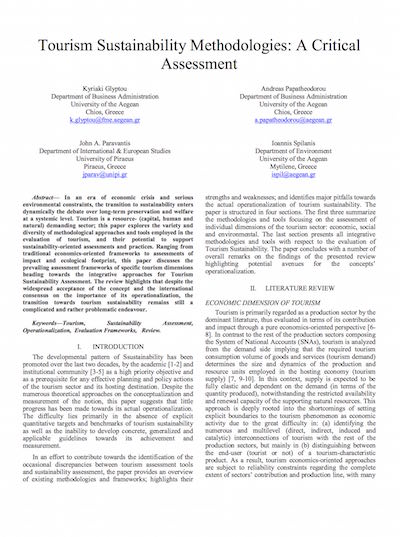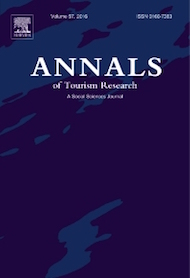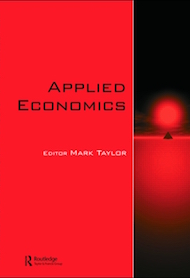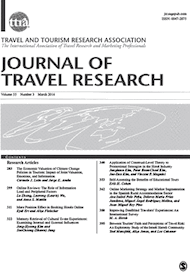In an era of economic crisis and serious environmental constraints, the transition to sustainability enters dynamically the debate over long-term preservation and welfare at a systemic level. Tourism is a resource- (capital, human and natural) demanding sector; this paper explores the variety and diversity of methodological approaches and tools employed in the evaluation of tourism, and their potential to support sustainability-oriented assessments and practices. Ranging from traditional economics-oriented frameworks to assessments of impact and ecological footprint, this paper discusses the prevailing assessment frameworks of specific tourism dimensions heading towards the integrative approaches for Tourism Sustainability Assessment. The review highlights that despite the widespread acceptance of the concept and the international consensus on the importance of its operationalization, the transition towards tourism sustainability remains still a complicated and rather problematic endeavour.







